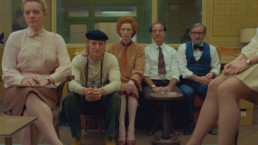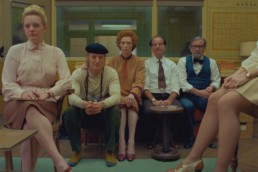With ‘The French Dispatch,’ Wes Anderson Invents With Short Stories
Wes Anderson's ninth feature film
In a conversation I was having with some cinephile friends earlier this week, one asked the group–ahead of The French Dispatch releasing in theaters today–”Does anyone else feel Wes Anderson-ed out?”
I’ll admit, I considered the question at length. I remembered the exuberance I felt while watching the film on the Aero theater’s big screen. But the question remained. With his ninth feature, had I finally had my fix of Wes Anderson’s fastidiously designed films? Had my storybook sensibilities been utterly exhausted?
Anyone who has seen all–or even just one–Wes Anderson movie knows that every outing from the prolific auteur is pure dessert for moviegoers. A mere moment is among the richest of intricately made confectionary treats. Eating an entire box in a single sitting is either the most savory of experiences, or the most uncomfortably stuffing.
A familiar brilliance
Throughout his entire filmography, Wes Anderson has stayed his course in realizing a vision that recalls the European cinema of the past. With his symmetrical compositions, his vision is unmistakably unique, and utterly his. He’s detoured only slightly in his filmography, opting to pit-stop into stop-motion animated films twice (both of which feel just as natural in their meticulously crafted nature as with his real-life films).
The question I pose is, considering the entire body of familiar and brilliant work that The French Dispatch will enter into the company of–like the next ornamentally designed hardcover book slotting into his shelf of others–how and where does it fit in?
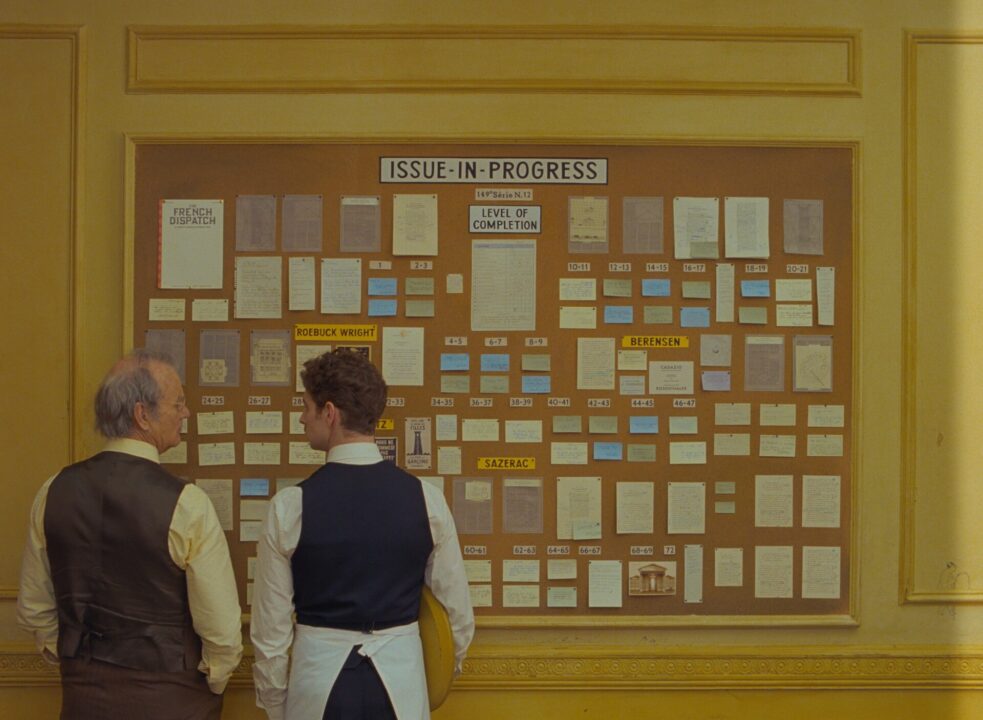
I’m happy and relieved to say that the new film is actually, again, something of another detour in Anderson-land. Where Wes’ previous eight films have all adhered to a single plot-driven storyline, the writer/director breaks from that convention only slightly in creatively making The French Dispatch an anthology series of short stories.
That larger backdrop is a fictional magazine (the Liberty Kansas Evening Sun) and its press, which he clearly loves the history of both. It’s actually obvious to see how The New Yorker magazine–which he was fascinated with as a child (can’t you just picture it?)–inspired his particular and creative writing style that evokes high-society intelligentsia. The French Dispatch is an homage to the institution and people that shaped that early artistic vision.
Anderson, and the anthology
The film’s structure breaks from his previous films, in that this outing is a series of short films–articles within an edition that cleverly mirrors a magazine itself. And it’s this anthology structure that makes it so welcome and appetizing at this point in his filmography (where was he supposed to go after the enormous accomplishment that was the decades-spanning screwball caper The Grand Budapest Hotel?).
Anderson’s recognizable camerawork and cast fit together like clockwork once again: Bill Murray leads the ensemble as the magazine’s Editor in Chief, Arthur Howitzer Jr. His personal sayings “No crying” and “Just pretend you meant to write it like that” can’t help but call back to Wes’ own fixation with composed deliberateness.
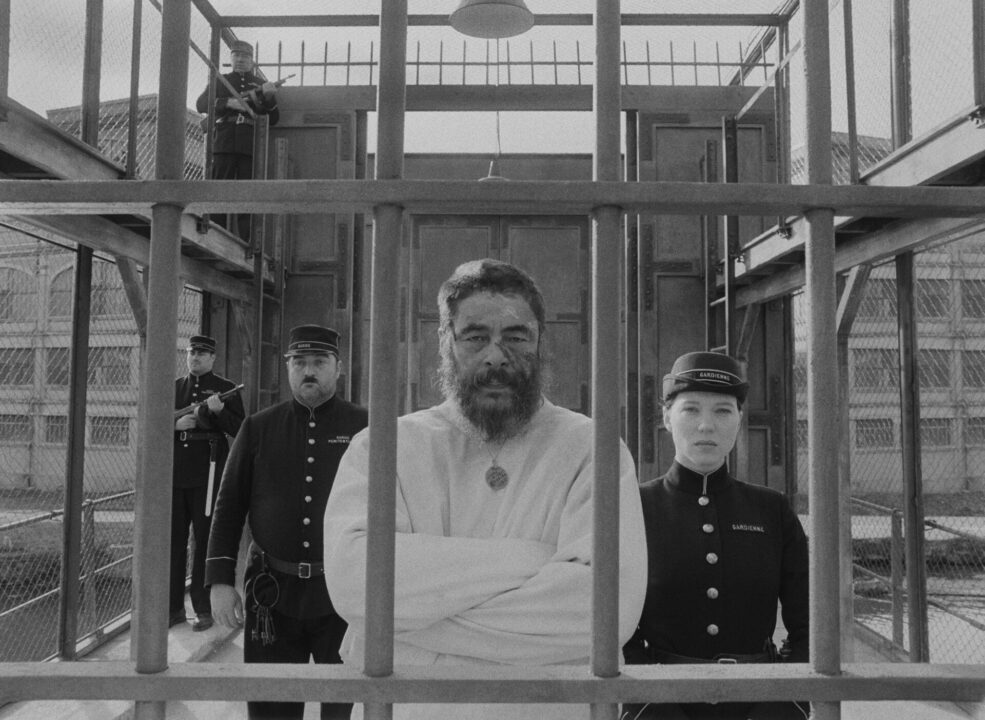
The rest of his regulars pop up again as well, all understanding their assignments. Owen Wilson strolls the city as a “man about town” bicycling reporter. Tilda Swinton earns laughs as an art lecturer. Adrien Brody entertains as a greedy art dealer, and newly-minted Oscar winner Frances McDormand shows she can deliver dry humor better than any.
It’s the new faces though that make the biggest splash, and who provide the most exciting time in the film. Benicio Del Toro and Léa Seydoux star in the film’s second short story, playing a brilliant but tortured artist/prisoner, and that prisoner’s muse/guard. “It” boy Timothée Chalamet stars as a student protestor attempting to lead a revolution in 60s France. And in the film’s fourth story (and most emotionally profound), Jeffrey Wright plays a writer and food critic with a larger story to tell.
Welcoming the short story
Following Anderson’s last feature film, 2018’s stop-motion pup tale Isle of Dogs, The French Dispatch feels like the right welcome back for Wes to display his filmmaking mastery. You can feel how excited he is at giving himself the opportunity to create not just one, but five (and within that, 500) worlds to play in.
However, the nature of the short story is also the film’s biggest limitation. For all of its brilliantly-staged choreography that binds everything together, I was left without feeling a deeper significance to invest into, rather than let myself simply be in awe over these madcap comedies. Anderson clearly connects to these stories and characters: of Del Toro’s tortured artist, Chalamet’s youthful rebel, and Jeffrey Wright’s melancholic food critic, in which we see Wes offer profundity and poignancy in a very welcomed way.
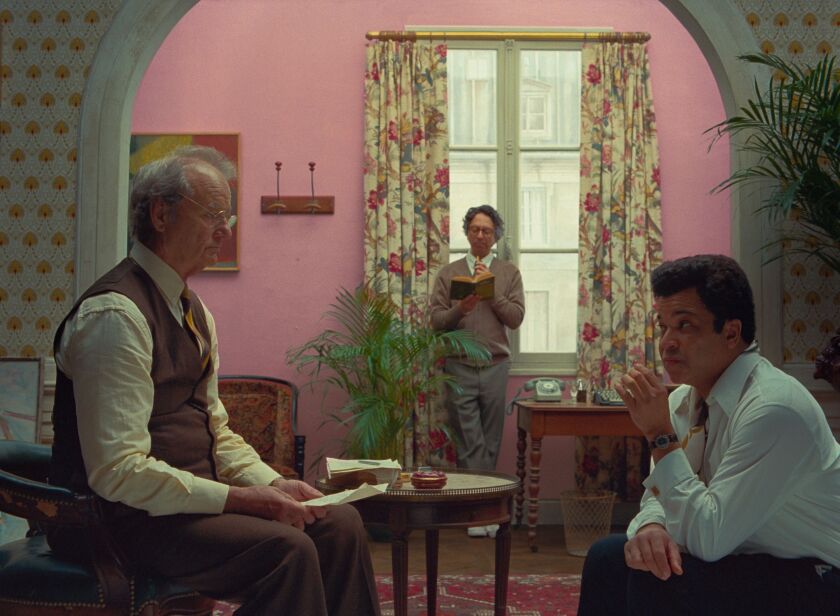
I don’t think that The French Dispatch will be included in the shorthand of Wes Anderson’s most memorable films. However, it is a different sort of achievement in its own right. A love letter to journalism and the writers and institutions that crafted himself as an artist, you can admire the heart that Wes shows here. And I shouldn’t downplay that fact that it really does rival the intricate complexities and huge vision that The Grand Budapest Hotel displayed too. Just try and mentally pause any frame at any moment in your head, and notice the mastery of any one shot.
What was the question again? “Anyone else feel Wes Anderson-ed out?” To that, I say this: empty your head beforehand. Leave your memories, expectations, and projections behind. And then watch it, with eyes anew. I did. And the endless awe and inspiration that I drew from it gave me something worth writing about.
‘The French Dispatch’ is in theaters Friday, October 22nd.
Ryan Rojas
Ryan is the editorial manager of Cinemacy, which he co-runs with his older sister, Morgan. Ryan is a member of the Hollywood Critics Association. Ryan's favorite films include 2001: A Space Odyssey, The Social Network, and The Master.

